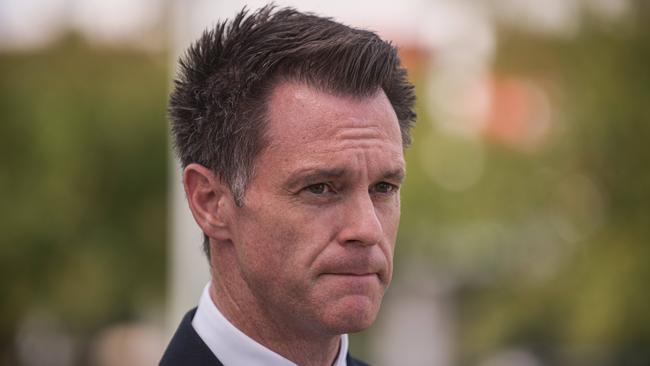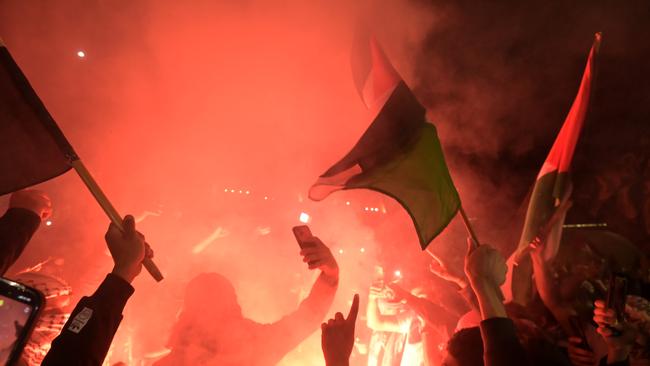Major change to ‘ineffective and impotent’ hate speech law being considered by NSW Government
A law forbidding hate speech and incitement to religious and racial groups could be overhauled amid criticism it isn’t fit for purpose, with Premier Chris Minns saying “something has got to change”.
NSW
Don't miss out on the headlines from NSW. Followed categories will be added to My News.
A law forbidding hate speech and incitement to religious and racial groups could be overhauled amid criticism it isn’t fit for purpose, with Premier Chris Minns saying “something has got to change” in the wake of heated protests over the Israeli-Palestine conflict.
Mr Minns confirmed on Monday his government would review section 93Z of the Crimes Act, which criminalises threats or incitement of violence over religious or racial grounds.
The law hasn’t resulted in a successful prosecution since it was introduced in 2018.
The Daily Telegraph understands that as part of the review, the government is considering scrapping the need for the Director of Public Prosecutions (DPP) to approve a prosecution for religious or racist hate speech.
It comes as Jewish and other faith leaders said the laws as they stand are “ineffective and impotent”.

NSW Jewish Board of Deputies President David Ossip highlighted the need for DPP approval to charge someone under the law as “the most problematic element”, saying it could take months.
It’s understood NSW Police have prepared a brief of evidence for the DPP to consider, which could result in protesters from the October 9 rally at the Opera House being charged under 93Z.
“It is clear that incitement laws in NSW need to be strengthened when hate preachers can freely make sermons that call for the murder of Jews, or individuals can chant ‘Gas the Jews’ on the forecourt of the Opera House, and escape prosecution,” he said.
Murray Norman, the CEO of Faith NSW, said although the laws may have been “well-meaning”, it was “clearly … not serving their purpose”.
“The laws that were introduced five years ago to prosecute those who publicly threaten or incite racial and religious violence have proved to be ineffective and impotent,” he said.

“It is important that the intent of the law championed by so many in 2018 can be appropriately captured in the Crimes Act so that they can be effectively used.”
Peter Wertheim, co-CEO of the Executive Council of Australian Jewry, said it was “definitely time to review the whole range of laws that we have in this area”.
“Usually what happens in practice is that hate preachers and protesters stir up violent emotions in people – but without going so far as to urge them to take violent action, and therefore a prosecutor will not be able to prosecute a person under that section,” he said.
He said a way forward would be to “get away from an exclusive reliance on concepts, like ‘threats’ or ‘incitement’ and broaden the law to prohibit the promotion and advocacy of violence”.
“I think most people would expect to be protected from others who would promote or advocate violence against them,” he said.
The Premier on Monday said the issue with the law was that “it’s resulting in no prosecutions” and “something’s got to change”.
“If you’re going to have a law on the books saying racial vilification and hate speech is not allowed in New South Wales, then it can’t be toothless,” he said.
“You’ve got to have a situation … where it does result in charges in the end and I don’t think anyone would, with a straight face, make the claim that hate speech has been extinguished in this state.”




